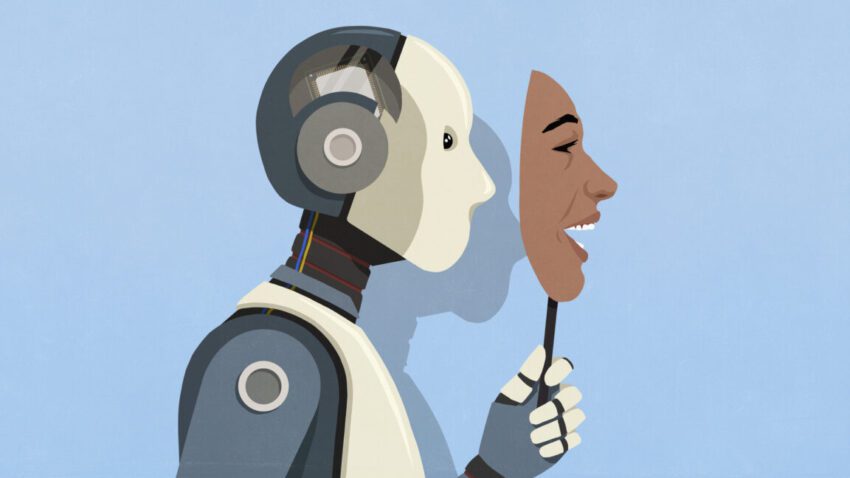
caught cheating in class college students apologized Recent incidents have highlighted how college students are increasingly using artificial intelligence to craft apologies after being caught cheating, raising questions about academic integrity in the digital age.
caught cheating in class college students apologized
The Rise of AI in Academia
As technology continues to evolve, so does its impact on various sectors, including education. The integration of artificial intelligence (AI) into academic settings has transformed how students approach their studies. With tools like ChatGPT and other AI writing assistants, students can generate essays, reports, and even personal reflections with relative ease. This trend has sparked a debate about the ethical implications of using AI in academic work.
AI-Generated Submissions
One of the most concerning developments in this landscape is the prevalence of AI-generated submissions. Reports indicate that students are increasingly submitting papers that are not their own work but rather the product of AI algorithms. This practice is not limited to simple assignments; even complex, personal reflection papers are being generated by AI. The ease with which students can produce these documents has led to a culture where academic dishonesty is becoming normalized.
For many students, the allure of AI-generated content lies in its efficiency. Instead of spending hours researching and writing, students can input a few prompts and receive a polished piece of writing in minutes. This has led to a significant decline in the quality of student work, as the emphasis shifts from learning and understanding to merely completing assignments.
Surprise and Denial
What is particularly striking is the reaction of students when they are caught using AI to cheat. Many appear genuinely surprised when confronted by professors about the authenticity of their submissions. This reaction raises questions about the understanding of academic integrity among students. Are they unaware of the ethical implications of using AI in this manner, or do they simply believe they can evade detection?
In some cases, students have resorted to using AI to craft apologies after being caught. This has led to a further erosion of trust between students and faculty, as professors are left to question the sincerity of these apologies. The use of AI in this context not only undermines the act of apologizing but also highlights a broader issue: the diminishing value placed on personal accountability in academic settings.
Faculty Responses and Concerns
Professors and educators are increasingly voicing their concerns about the implications of AI in the classroom. Many are grappling with how to address the issue of academic dishonesty while still embracing the benefits of technology. The challenge lies in finding a balance between leveraging AI as a tool for learning and preventing its misuse.
Academic Integrity Policies
In response to the rise of AI-generated submissions, many institutions are reevaluating their academic integrity policies. Some universities are implementing stricter guidelines regarding the use of AI in coursework, while others are investing in plagiarism detection software that can identify AI-generated content. These measures aim to deter students from engaging in dishonest practices and to uphold the standards of academic integrity.
However, the effectiveness of these policies remains to be seen. As AI technology continues to advance, it becomes increasingly difficult to distinguish between human-written and AI-generated content. This poses a significant challenge for educators who must navigate the complexities of modern academic integrity.
Engaging Students in Ethical Discussions
To combat the rise of AI misuse, educators are encouraged to engage students in discussions about ethics and integrity. By fostering an environment where students understand the importance of honesty in their academic pursuits, professors can help instill a sense of responsibility. This could involve incorporating lessons on the ethical use of technology into the curriculum, encouraging students to reflect on their values, and promoting open dialogue about the implications of AI in education.
The Broader Implications of AI in Education
The implications of AI in education extend beyond academic integrity. As students increasingly rely on AI tools, there is a growing concern about the impact on critical thinking and problem-solving skills. The ability to generate content quickly may lead to a superficial understanding of subjects, as students may prioritize speed over depth of knowledge.
Impact on Learning Outcomes
Research has shown that active engagement in the learning process is crucial for retention and understanding. When students bypass traditional methods of learning in favor of AI-generated content, they may miss out on valuable opportunities for growth. This raises important questions about the long-term effects of AI on educational outcomes and the future workforce.
Moreover, the reliance on AI tools may create a generation of students who are ill-prepared for the challenges of the real world. Employers often seek candidates with strong analytical and problem-solving skills, which may be compromised if students do not engage deeply with their studies. As such, the implications of AI misuse in academia could extend far beyond the classroom.
The Role of Parents and Guardians
As the landscape of education continues to evolve, the role of parents and guardians becomes increasingly important. With firsthand experience in both academia and the challenges faced by students, parents can play a crucial role in guiding their children through the complexities of modern education. Open discussions about the ethical use of technology, the importance of academic integrity, and the value of hard work can help students navigate the challenges posed by AI.
Parents can also encourage their children to develop strong study habits and critical thinking skills. By emphasizing the importance of understanding the material rather than simply completing assignments, parents can help foster a sense of accountability and responsibility in their children.
Conclusion
The integration of AI into higher education presents both opportunities and challenges. While AI tools can enhance learning and streamline processes, they also pose significant risks to academic integrity. As students increasingly turn to AI for assistance, educators must adapt to this new reality by reinforcing the importance of honesty and ethical behavior in academic pursuits.
Moving forward, it is essential for institutions to strike a balance between embracing technology and maintaining the integrity of the educational process. By engaging students in discussions about ethics, reevaluating academic integrity policies, and fostering a culture of accountability, educators can help ensure that the benefits of AI are realized without compromising the core values of education.
Source: Original report
Was this helpful?
Last Modified: October 31, 2025 at 1:37 am
9 views














